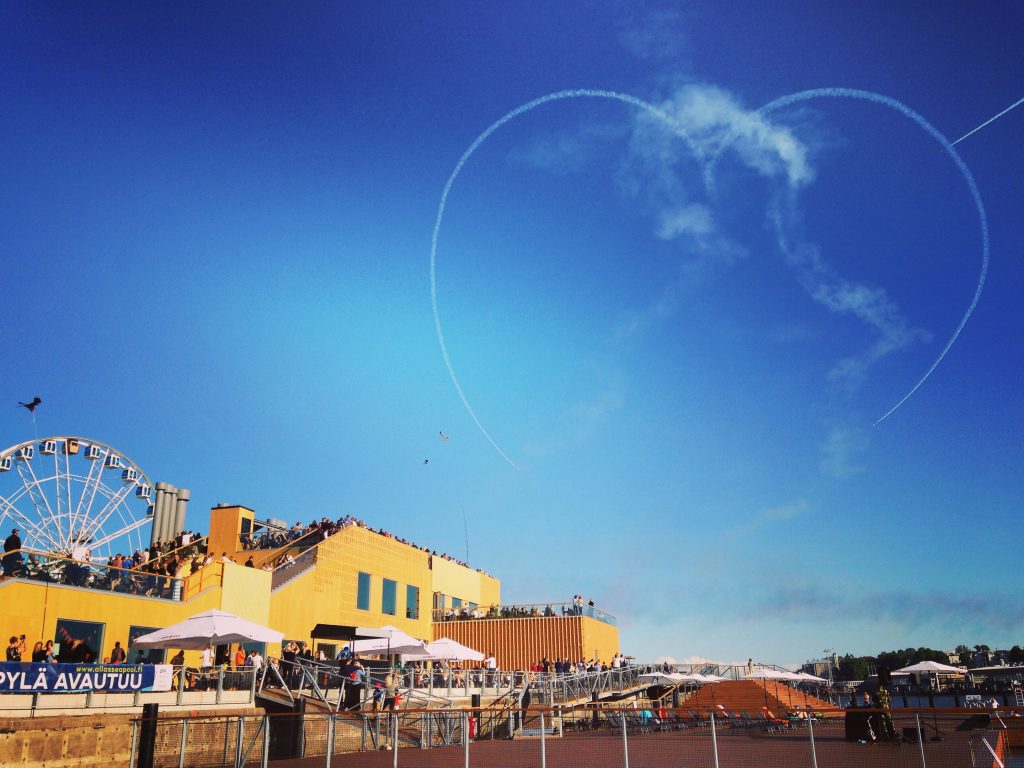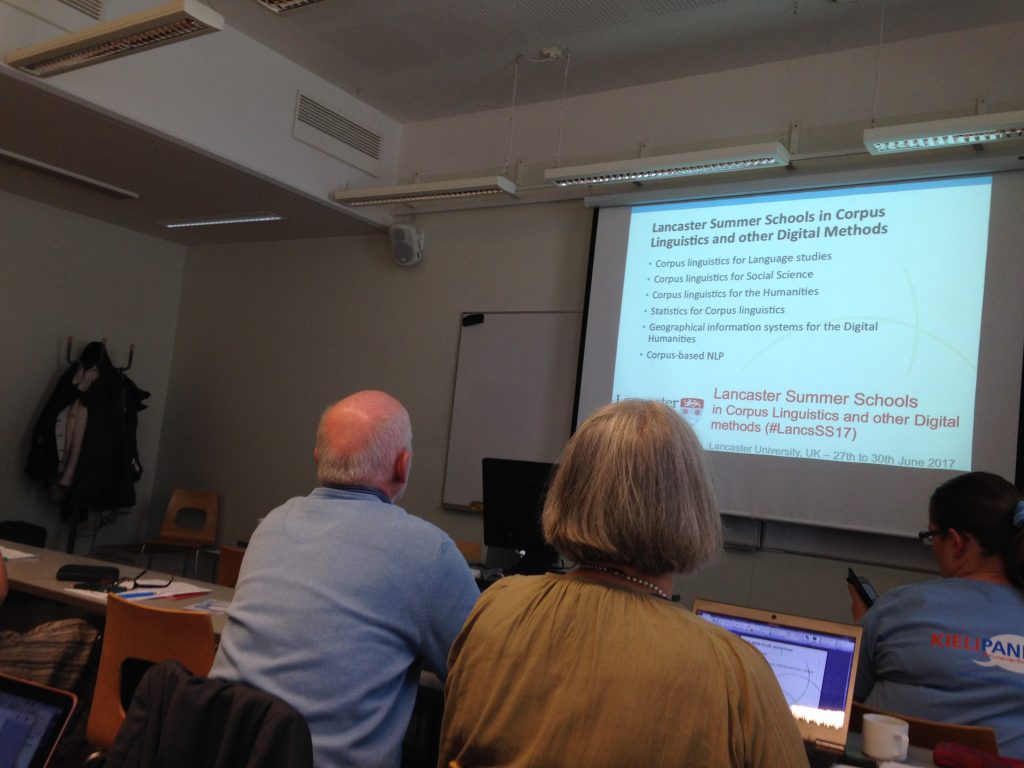At the beginning of June, I attended the CLARIN PLUS workshop on User Involvement held in the capital Helsinki. CLARIN stands for “Common Language Resources and Technology Infrastructure”; it is an international research infrastructure which provides scholars in the social sciences and humanities with easy access to digital language data, and also advanced tools to handle those data sets. The main purpose of the workshop was to share information, good practice, expertise, and ideas on how potential and current users can most benefit from CLARIN services.
I was representing Lancaster University as part of the UK branch of CLARIN, which is led by Martin Wynne at Oxford. Some of the participants, representing CLARIN’s different national consortia, shared their successful stories of their involvement with the local community.
At the workshop, Johanna Berg, from Sweden, and Mietta Lennes, from Finland showed us how they made innovative use of the roadshow event format to present some language resources across different institutions in their countries. Mietta also gave us a taste of the very useful tools and corpora that you can find at The Language Bank of Finland.
Another fruitful example presented at the workshop was the Helsinki Digital Humanities Hackathons. The event, which is in its third edition, brings together researchers from computer science, humanities and social sciences for a week of intensive work sharing a diversity of skills. Eetu Mäkelä, one of the organisers of the DHH, demonstrated that it is possible to engage researchers from very different backgrounds and have them working in a complementary way. The impressive results of last year’s edition can be checked out at the DHH16 website.
At the end of two profitable days, Darja Fišer, director of CLARIN-ERIC User Involvement, wrapped up the event by presenting other amazing experiences across several institutions connected to CLARIN. One of the success stories she mentioned was the Corpus Linguistics: Method, Analysis, Interpretation MOOC offered by CASS, which will be running again in Autumn this year (you can register your interest here!). Darja also highlighted the importance of events such as summer schools to reach out to more users. Indeed, Darja shared some incredible resources and insightful ideas at our recent Summer Schools in Corpus Linguistics and other Digital methods (#LancsSS17). Make sure you read our next blog post for a summary of the summer school week!


